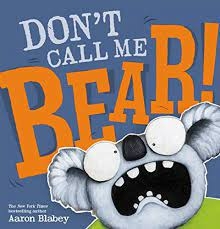Negating Negation…The Power of “No”, “Not”, and “Doesn’t”…
Negation in language development represents the contradiction, denial, absence of, or opposite of something. Negation is developing through (and beyond) age 5 and is a vital concept in growing language skills and problem-solving skills. Young children often readily embrace the word “No” as a power word, helping them to express themselves as they grow and develop likes and dislikes. The word “no” fosters the development of autonomy.
Further understanding and use of negation involve complex thinking skills because negation takes on different word forms (no, don’t, not, neither…) and is used for differing functions. Ponder the differences between “wouldn’t”, “couldn’t”, and “shouldn’t”. “Wouldn’t” implies a decision, “couldn’t” implies consideration of limitations, and “shouldn’t” implies consideration of reasons. Another important developmental negation skill is, “What doesn’t belong in this group?” In this skill, a child is developing language skills and problem-solving skills of reflection, comparison, and classification. Books (like the "Don't Call Me Bear" pictured) are also great ways to stimulate negation during daily reading routines.
Look at the varied critical thinking skills within each word of negation. Use these powerful word tools to keep your kiddos thinking while growing their vocabulary skills. Negation can be so much more fun than “no”: )
The age of acquisition of varied negation concepts are listed below:
12-22 months: single word – no, gone; negative + x
22-26 months: no and not used interchangeably
28-30 months: no, not, don’t, can’t used interchangeably; uses a negative next to a verb
31-32 months: negative element placed between the subject and predicate
33-34 months: won’t appears and is used interchangeably with no, not, can’t, don’t
35-37 months: negative appears with auxiliary verbs; subject + auxiliary+ negative + verb
38-40 months: adds isn’t, aren’t, doesn’t, and didn’t
41-46 months: adds wasn’t, wouldn’t, couldn’t, shouldn’t; negative appears with copula in subject + copula + negative
47+ months: adds indefinite forms nobody, no one, none, and nothing; has difficulty with double negatives; uses copula + negative
Brown, R. (1973). A first language: The early stages. London: George Allen & Unwin.





 Launch the media gallery 1 player
Launch the media gallery 1 player.png)


